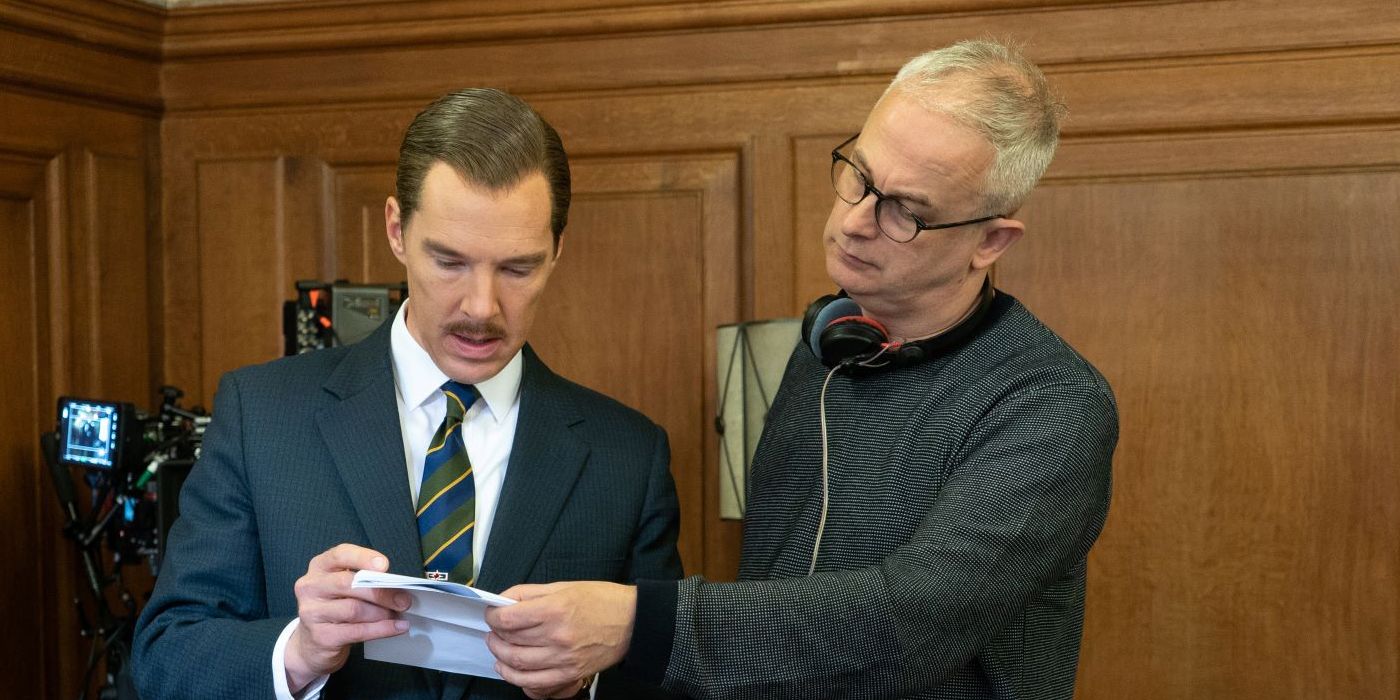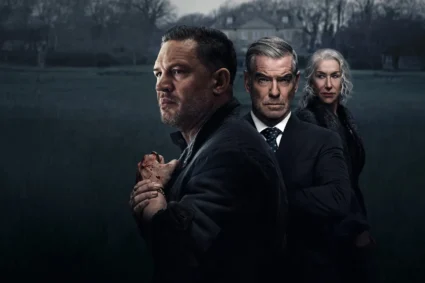
This is one of the most human and emotionally driven spy stories I’ve ever seen, and it’s a true story that feels like it couldn’t possibly be true. What was it about the story of Greville Wynne that appealed to you to bring his story to the big screen?
Well, I was really drawn by the emotional life of the story actually. I was given the script already in the first draft form. It was actually pretty close to script that we shot. There were a few key changes. It was not like one of the scripts that had to go through rewrites which it completely different. It had this very sorta moving center of it, a very profound friendship.
So its partly a story of friendship and heroism in the Cold War and its usually the key ingredient of an espionage thriller but as you said earlier its got a warmer heart than most and that’s partly because the whole thing is fueled by an amazing friendship between two men who had never met and ended up making things that’s possible for one another. I think for me that I liked to be moved. I can’t really do something unless its sorta have an emotional effect on me for if it doesn’t have an emotional effect on me then its not going to have an emotional effect on anyone else. I think that’s an very important part of storytelling. Your end result maybe to bring about a change in people’s thinking or whatever but you’ve got to effect them emotionally first and this script really did.
You and Benedict had worked together before, most recently on The Hollow Crown, with him playing Richard III. And now you have him playing one of the country’s greatest unsung heroes. Had you two been looking for something to do together since then?
Yeah, I mean I wanted to work him again after that. He was brilliant on that and you know he is just an incredible talent who can do anything. When I was doing Richard III and I knew him from way back because we had done some theatre together back in the day when he was a younger actor and not the star that he is today. He was a respected theatre actor and not massively well-known at the time we did Richard III. I would have to say that it’s like working with Laurence Olivier. He’s absolutely amazing and every single day I would be amazed by the things he would create at the moment and that’s his great strength. He’s very instinctive and comes up with brilliant things. I learned pretty early on in The Crown that the best way to work with him is to not too gives him too many notes on the first few takes he works out how to do it himself. He’s one of those people who got a very strong gage in storytelling and he knows what the scene means. That’s a great gift, a very good gift!
It’s truly a great gift and his performance really shows in the movie and I hope that you have third production together.
Thank you.
One way to look at this story is one of patriotism on both sides of this fight, but it’s a concept that’s been eroded in recent times. It was nice to be to see it in its purest form. Did that in anyway play into the way you wanted to tell this story?
Yeah, that’s such an interesting question especially in these troubling times in that what does patriotism mean. I suppose that the key players have made a commitment to service of values and ideas on both sides. To Penkovsky, one of the key questions that I asked when I took the film on was “How can you tell the story of someone who is a traitor?” For he was a traitor to the Soviet system. I think his love of Russia meant that he was to betray the Soviet system.
I meant he particularly hated some of the system for his father had been a White Russian but on the other side. So, he had been at war and was killed by the Soviets. I believed that some had did terrible things and some of it was documented in our film and hurt many many people but there’s another side that’s not so bad that got people unemployment and people educated, free healthcare etc. There’s always two side to the story but to him, he loved Russia. He loved it. He thought that Russia was being betrayed at the time. I supposed that if you were a patriot during that time, then you would have a strong form of patriotism within the country.
Rachel Brosnahan’s character, Emily Donovan, who I’ve read was a composite of different male CIA agents who took part in this operation. Tell me about the thought process of making that transition from a male character to a female character in this role
Well, there was a woman and it’s really important in the story and she was one of the elements that we had to leave out. If you’re making a film based on real history, you had to focus down to some areas and you cannot tell the whole thing. There was a British agent named Janet Chisholm. She was such an extraordinary figure. She was the wife of a diplomat and she ended up when Greville wasn’t there taking stuff directly back and she would take stuff from Penkovsky and take it to the British embassy.
So, there was the really important woman in the story that we couldn’t tell about and the fact that we have to tell the story of the CIA and I wanted to make the CIA feel really different than MI-6. So, we decided to combine two men anyway and let’s honor the presence of a woman in the story and there was a very important woman. It was really useful in so many ways because it creates this very different dynamic from the US to the UK approach of espionage which actually its true. The two organizations have very different approach that there was a lot of competition between the two. The Brits were not happy that the CIA were getting more power than they were. So, there was a lot of tension there. It also brought this sense with Emily that she had to pretend that she was less smart than she was because the guys wouldn’t take it from a woman. So, she had to let them think that they were having the ideas. It was interesting because it was another form of pretending. Another way of the film of someone not being authentic in order to get what they needed to get.
Rachel is brilliant. She came in and she’s so smart, very clever and she nails that strategy that her character had to play. I am pleased that we did that because it adds quite a lot to it. It’s not just a bunch of guys in suits talking.
If you could describe The Courier in one word to the audience who are about to see it, what word would that be?
Loyalty, it’s a story of loyalty.
The Courier is now available ON Demand on all streaming platforms


